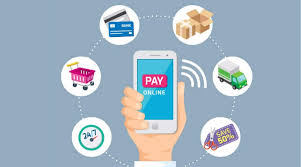Simplify Your Ecommerce Operations With Mobi
First, let's understand the meaning of an e-commerce payment gateway: a transactional system for processing funds from customers to the seller's account. As technologies are developing and businesses are shifting online – the need for seamless payment processors is increasing.
To meet the demands of the e-commerce market, our Mobi payment gateway is the one-stop solution that can cater to all your payment requirements.
What is the role of a payment Gateway in an Ecommerce Business?
In layman's terms, the role of a payment gateway is to acquiesce in the transaction process between merchants' accounts and customers. It is vital in supporting online transactions and authorizing transactions between business merchants and clients.
Note: Without a payment gateway, the transaction procedures cannot proceed further, resulting in the failure of payments and cash credits. A payment gateway will also help you to dissect and move transactional data.
Working of Payment Gateway:
A payment gateway is responsible for maintaining the transactions between you and your customers. For the same – it follows a procedure of settling the payment every time.
This process beings when a consumer places an order online to avail of any service/ product from a payment gateway enabled by a merchant.
From filling in all the card details to finally moving the payment into the merchant account, the payment gateway providers pass through various steps -
STEP 1 -
After the customer adds the product to the cart, he/she has to proceed with the payment, for which they have to add the credit card or debit card details.
STEP 2 -
The added card details will be encrypted securely with Secure Socket Layer (SSL) encryption to be sent.
STEP 3 -
After this, the merchant will forward the details to the payment gateway under the same SSL Encryption connection to the payment gateway server hosted by the gateway.
STEP 4 -
The payment gateway then converts the message from XXL to ISO 8583 and sends the transaction information to the payment processors used by the merchants acquiring bank.
Step 5 -
The payment processor then forwards the payment details to the card associations.
Step 6 -
After this, the credit card issuing bank receives the authorization request and verifies the credit and debit cards available.
Step 7 -
The processor then moves the authorization response to the payment gateway, and then the payment gateway receives the response and forwards it to the interface used to process the payments.
Step 8 -
The merchant is responsible for fulfilling the order, and the above procedure can be repeated by consummating the transaction.
Step 9 -
Further, the merchant submits all the approved authorizations in a ‘batch’ – to their acquiring bank for further settlements.
Step 10 -
The acquiring bank makes further batch settlement requests of the card issuer.
Step 11 -
The issuer makes the settlement payment to the acquiring bank.
Step 12 -
The final step happens when the acquiring bank deposits the approved funds into the merchant's account.
Save Time
For an e-commerce business, using a payment gateway is mandatory. This payment gateway is the fastest way to make payments than manual processing – it begins accepting payments within a 24hr period after setting up a payment gateway. Faster payments are a vital part of digital transactions and e-commerce success. Understanding that online shopping is based on impulsive buying decisions ensures your customers have a quicker payment process system.
Expand Your Customer Base
Integrating with a payment gateway system will allow your business to seize opportunities in new markets. Through reliable and secured payment, you can build trust with your customers. Payment gateways provide multi-currency-adapted payment options so your business can reach maximum audiences. Due to enhancements in the existing technologies, e-commerce businesses are reaching out to the global market.
Secure Transactions
Incorporating payment gateways in your e-commerce website is necessary for every business owner. Data piracy and data fraud are increasing. Hence, having a payment gateway that secures all your payment details is essential. Secured payment gateways keep your payment data encrypted to save customers from data fraud.
Convenience
With quality payment solution service providers, swift transactions can be processed anytime and anywhere. Even when you are resting, your customers can make secured transactions and place orders. A payment gateway system is not just beneficial for a merchant – as it caters to the buyer's needs by providing them with the feasibility to make purchases anytime and anywhere. In e-commerce businesses, the payment gateway saves buyers and sellers time.
Mobi payment gateway is a master of supplying e-commerce payment gateway solutions to e-commerce merchants. At Mobi, we deliver tailored solutions specifically personalized to meet the needs of your business.
Get in touch with our professionals and stay ahead of your competitors. Don’t let your business fall behind.
.jpeg)

.jpg)

Comments
Post a Comment